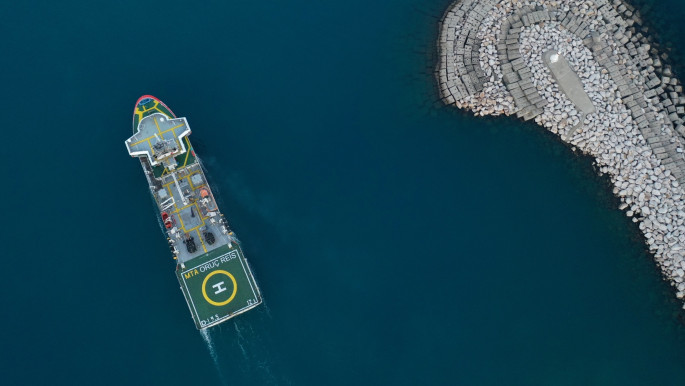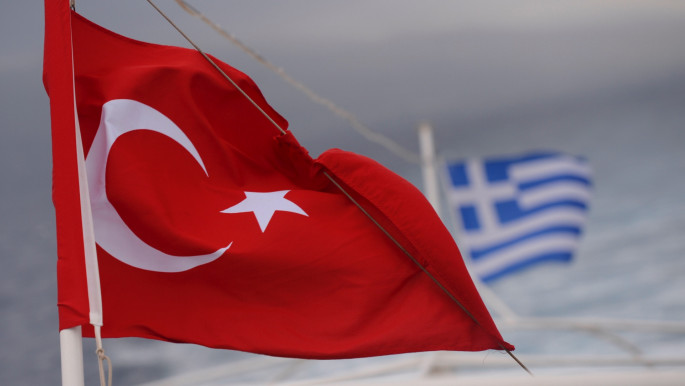A new chapter in Greece's Middle East military strategy
The statement by Chief of General Staff of the Israeli army, Aviv Kochavi, a few days after Joe Biden's inauguration sent an indirect message to Washington and a more direct warning to Tehran. What was striking is the fact that he placed Greece at the top of the list.
Athens has a long history of developing defence equipment, especially after the Cyprus crisis in the mid-1970s, when the United States at that time chose neutrality at first and then leaned towards the Turkish side.
Former Greek governments have used defence supplies more as a diplomatic card than as an extension of their military policy, given Greece's participation in NATO and the US unipolar international leadership, while during the recent economic crisis any arms program was virtually zero. Moreover, Greece has in the past refrained from engaging in regional or international conflicts.
But this seems to have changed significantly during the New Democracy party's rule in Greece over the past two years. The government has pursued a different diplomatic strategy and consolidated it with a series of military agreements ranging from arms purchases to common defence pacts, launching a new phase for Athens in the region - from the Aegean Sea to the warm waters of the Gulf.
Late last month, on a scheduled visit to Athens, French Defence Minister Florence Parly signed an agreement to sell 18 fifth generation Rafale aircraft to Greece for 2.5 billion euros ($3.04 billion). This agreement, which is the largest since the beginning of this century for Greece, is of great importance for both sides. For Paris, in the shadow of crises ranging from Brexit to the repeated closure of French cities due to the pandemic, this military deal is a positive development.
 |
The New Democracy party has pursued a more proactive diplomatic strategy with regional actors, launching a new era for Athens in the region |  |
For Athens, in geopolitical terms, this agreement is in line with the Greek government's new strategy, which began early last year and became more necessary due to the high level of tension with Turkey last summer. But the most important milestone in Athens' push for militarisation was not with Paris, but Abu Dhabi, with the signing of a joint defence cooperation agreement between the two countries in November 2020.
An analysis of the Libyan conflict reveals the reasons for the beginning of this new phase for the Greek military. The memorandum of understanding between Ankara and the Government of National Accord (GNA) in Tripoli, signed at the end of 2019, was the first spark of change that shaped the path of Athens and its political and military priorities. In a purely emotional act of revenge against Ankara, Athens opened its doors to General Khalifa Haftar, without gaining any substantial benefits.
 |
|
| Read more: How Gulf reconciliation could impact the Eastern Mediterranean |
Haftar, who was mainly supported by Abu Dhabi, constituted common ground between Greece and the UAE, opening a new era of cooperation between the two countries. However, a logical reading of these dynamics makes it clear that common interests between Athens and Abu Dhabi and shared hostility towards Ankara are not sufficient reasons to reach an agreement on common military defence, especially for the Greek side.
The defence pact has two perspectives. It provides more protection for the UAE, in the shadow of an unfavourable atmosphere in the Gulf over Iran's nuclear program and Tehran-backed militias which are spreading to Iraq, Syria and Yemen and constantly threatening to strike Abu Dhabi and Dubai.
For the Greek side, the agreement places Athens in the middle of a conflict that has lasted for more than half a century and makes it an enemy of Iran and its militias, which is political naivety on the part of the Greek government that stems from ignorance of regional dynamics.
When Greek Prime Minister Kyriakos Mitsotakis declared a state of emergency in mid-July, the most important question in the corridors of Greek diplomacy was whether Greece was capable of dealing with Turkey in any possible conflict, despite the fact that the chances of the two countries going to war were virtually zero as members of NATO.
 |
Tensions with Turkey have given rise to the adoption of a new military strategy by Greece |  |
This logic, however, did not prevent the current Greek government from reading events differently and adopting a more aggressive and contradictory military strategy by choosing to develop the operational capabilities of the Greek army, proceeding with agreements for the supply of French Rafale aircraft and the construction of a training airport worth $1.6 billion with Israel. Furthermore, Greece has also publicly declared an interest in acquiring F-35 fighter aircrafts from the US. So what is the rationale behind this strategy?
First, during the events of last summer in the Eastern Mediterranean, the Greek army went into a state of emergency, which lasted about two months, for the first time this century. This provoked discussions within the army and the government about Greece's capabilities vis-à-vis NATO's second largest army, that of Turkey. This reality gave rise to the adoption of a new military strategy for Athens, which felt that Washington was moving towards tightening its policy towards Ankara, either with Trump remaining in office or with the arrival of Biden.
 |
|
| Read more: How the Kashmir dispute is playing out in the Eastern Mediterranean |
The US ambassador to Athens, Geoffrey Pyatt, played a key role in encouraging the Greek government to prepare for a time when Ankara would have less regional and international influence. The personal desire of the Greek prime minister himself to play an important role in the region and gain more influence cannot be ignored. To achieve this, Greece's military would have to be strengthened in order to gain more respect as an influential player.
The warming of ties between Turkey and Saudi Arabia could have a positive impact on Ankara's relationship with the UAE. As such, Athens' allies, on whom it relies on to change its military policy, may have to choose between Turkey as a strong player in the region and Greece, which has only just begun to play a similar role.
Washington has been, and continues to be, the only actor who determines the future of the conflict in the Eastern Mediterranean, but the atmosphere in the White House is unclear about its future plans regarding tensions in the region. Biden has many complex issues in front of him, the most important of which is Iran and the nuclear deal, while the issue of the S-400s will be at the top of the agenda in US-Turkish talks, putting the Mediterranean in second place.
As for Athens, it will have to wait until next summer to fully understand the new US administration's plans for the outstanding Eastern Mediterranean issues, which include Cyprus and the maritime border between Turkey and Greece. Until then, the waters of the Aegean will probably remain stagnant.
Eva J. Koulouriotis is a political analyst specialising in the Middle East
Follow her on Twitter: @evacool_





 Follow the Middle East's top stories in English at The New Arab on Google News
Follow the Middle East's top stories in English at The New Arab on Google News


